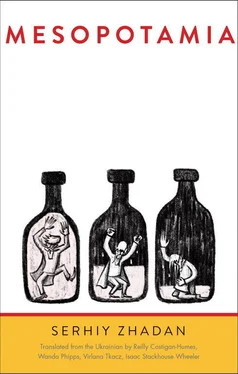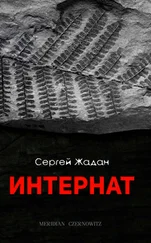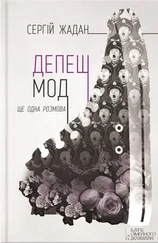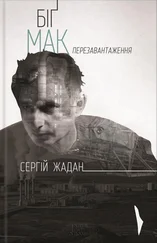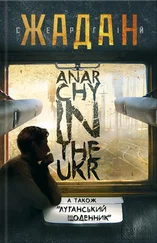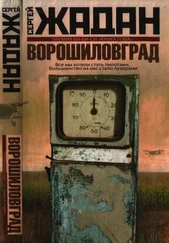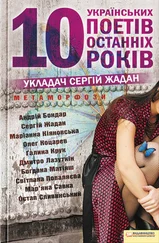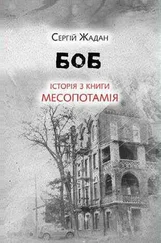“Oh yeah, ya call that stress?” Yura said on his first night in the ward, when the twilight made the young guy melancholy and he started griping. “Try being an electric guitar player in a hall where the electricity keeps cutting out—now that’s stress, man. We’re so used to complaining about everything. We’ve gotten real soft. We don’t even know what our internal organs are made of anymore. And when you get down to them, you find so much evil that you don’t even know if you should try to treat them. What’s the use?”
That night, Alla, the nurse, came by his ward, called him out into the hallway, whispered at length in the moonlight, gave him her phone number, and ran on home. Yura went back to the ward and took out his cell, but then he remembered Black Devil and hid it in his pocket again. He just lay there, peering out the window in a dreamy haze. “Everything’s gonna be all right,” he thought. “I’ll camp out here for a month and then take it from there.” He liked hospitals—they were always clean. His apartment was never that clean. Over the past twenty years he’d spent his fair share of time in hospitals—two knife wounds, second-degree burns, kidney trouble, and all sorts of infections, not to mention going in and out of drug rehab. So he wasn’t even close to panicking this time around—“just another brick in the wall,” he thought, “just another corpse in the river.” Time was chipping away at him; he was getting older, the last few morning IVs had made him woozy, and a wave of drowsiness was breaking over him now, mixing the smells of leaves and state-issued sheets. That goner was lying on the next bed over. His breathing had slowed like a river in the lowlands. He had two days left to live—a ton of time and a ton of sorrow.
That was the first night, and three days later, once the deceased had been carried out and his sheets changed, a new guy arrived in their ward. “Who’s this chump? He looks like a damn gym teacher,” Yura thought, looking at the new arrival—an elderly man in old yet neat and well-tailored clothing. He wore a freshly ironed blue cotton tracksuit with thin white stripes and polished pointed dress shoes that had a festive holiday glow to them. He made a good first impression, despite his odd getup. Maybe it was his kind, fat-lipped smile, maybe it was his big clown nose, or maybe it was those last strands of hair rakishly combed to one side of his yellowed skull. He came in with two bulging Hugo Boss bags, stuffed them under his bed, surveyed the room, instantly ascertained who was in charge around here, took a seat on the edge of Yura’s bed, and nodded conspiratorially at Sania, as if to say, “Has this guy been bustin’ your fuckin’ balls, buddy?” Yura put his National Geographic aside diplomatically, expressing more or less the following sentiment: “Come on, if you’ve got something to say, then say it already.” The new guy’s name was Valera, and he looked Yura straight in the eye whenever he was talking to him, seemingly emphasizing his every utterance. His eyes matched his tracksuit—they were just as blue and ironed just as flat and they kept tearing up, as though he was griping about something.
“How is it here?” he asked. “Is it tolerable?”
“Yep,” Yura answered, “for a while at least.”
“I won’t be here all too long. Only head cases hang around hospitals—they don’t have to go back to work. I should know, I’ve been around them my whole life,” Valera said confidentially. “I work at the circus.”
“Are you a clown?” Yura asked immediately, for some reason.
“No,” he said, not taking offense. “I’m a logistics manager.”
He returned to his bed and started telling them his life story. It was packed with danger and adventure, obviously. Yura thought to himself that people with such wide and defenseless smiles generally fall into the deepest professional ruts. Their eagerness makes them so wide-eyed, they can’t even see where they’re going half the time. Valera told tales about the sweet and mysterious world of the circus, their strict regimens and harsh customs, their ancient rituals and professional hierarchies, throwing out dates, quoting poets, recalling the names of performers and tame tigers, and sharing special trapeze safety techniques. He was mainly addressing Yura, but the young guy was the one that was really paying attention—maybe he was a fan of the circus, or maybe he was just glad not to have a corpse in the next bed anymore. Yura humored Valera, nodding or shaking his head whenever the circus manager demanded that he bear witness to the truth of his utterances, but shortly thereafter he took cover behind his magazine, trying to focus on the birds and beasts of Mesopotamia. “How much longer is he gonna keep this up?” Yura thought nervously. “He’s been talking for an hour already, and we’re only up to his college entrance exams. How many more stories does he have?” Then Valera started reminiscing about the sunny days and purple nights of the sixties, their flashy shows and their sultry women who loved the circus more than the most devout Christians love their churches. It follows that they loved him too—after all, how could anyone snub him?
“And they never did!” Valera exclaimed, reaching into his bag and producing a meticulously filed collection of old color pictures in an envelope labeled Unybrom —Yura immediately remembered how photographic paper was sold in envelopes like that back when he was a kid, thinking about how old he was, how much useless nonsense he’d seen, how hopelessly he’d lost touch with the present, and how long it’d been since he’d gone to the circus. “Probably ten years ago or so. Or has it been even longer? Maybe it’s only been ten years.”
His little Mashka was already all grown up by then; she didn’t want to go to the circus, but nobody had asked her, as usual. Yura had just come home from yet another bender and was trying to patch up his home life. The circus looked like the Reichstag after the Red Army took it—everyone was beaming with joy, but the building had seen better days. Cold hallways, women in fur coats, cognac at the refreshment stand, and the beasts of Mesopotamia in the gloomy ring. Mashka was crying. She felt bad for the lions. The women were laughing. They decided to walk home—they didn’t feel like riding in the same trolley as those people. Now he was looking at the envelope in the old-timer’s hands, glancing at his fingers—discolored by nicotine, warped by time and alcohol, battered and covered in scars, as though somebody had cut a notch into them for every year he lived. Seeing the effect his life story was having on his listeners, Valera perked up, pulled a picture—clearly his favorite—out of the envelope, and handed it to Sania, his gaze brushing over it tenderly yet brusquely.
“Here, kid, take a look,” he said, barely able to contain his excitement. “That’s me back in ’71. See what I was like back then? Just take one look, how can you not love the circus?”
Apparently much enamored of the young Valera, Sania chuckled and passed the picture to Yura. He laid it flat on one of the pages of his open magazine, next to a wild desert mule. Valera had a fiercely independent manner, a proud stance, piercing eyes, and, most important, a thick head of hair, a cavalier mustache, and pirate sideburns. Yura involuntarily compared the two photographs—Valera and the mule. “There’s definitely some overlap. No doubt about that.” He gave the picture back to the young guy and kept listening to Valera’s narrative for a bit, but once the circus people started delivering baby lions, he took cover behind his magazine, catching some familiar letters, arranging them into words, using those words to construct sentences, sifting through language to separate the circus guy’s spoken words from the written ones on the pages before him, untangling the colorful, silk strands of stories, untying knots, and patiently rowing through the sun’s rays with a lifeline in his hand. He noted that in Mesopotamia nobody rode horses or used them as draft animals. They would only hitch them to the chariots they took into battle or used to hunt wild birds and predators that crept up to the city’s outer walls. Mesopotamians were tender and attentive with their horses—they valued them and cared for them. The advice offered by their grooms was touching and thought-provoking; they insisted that the owners of these magnificent animals pay special attention to their diet and hygiene, spare them the strain of long, arduous journeys, let them into their homes, if need be, let them lie down on the floor next to them, so they could feel their breathing, cover them with warm fabric on cold winter nights, pick up on subtle changes in their moods, and take the time to listen to their tales of sorrow and hardship.
Читать дальше
